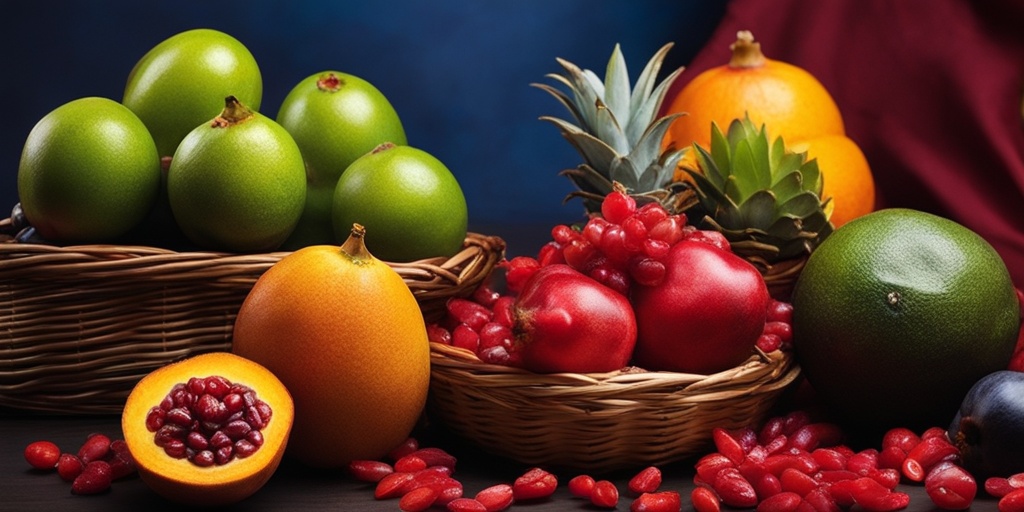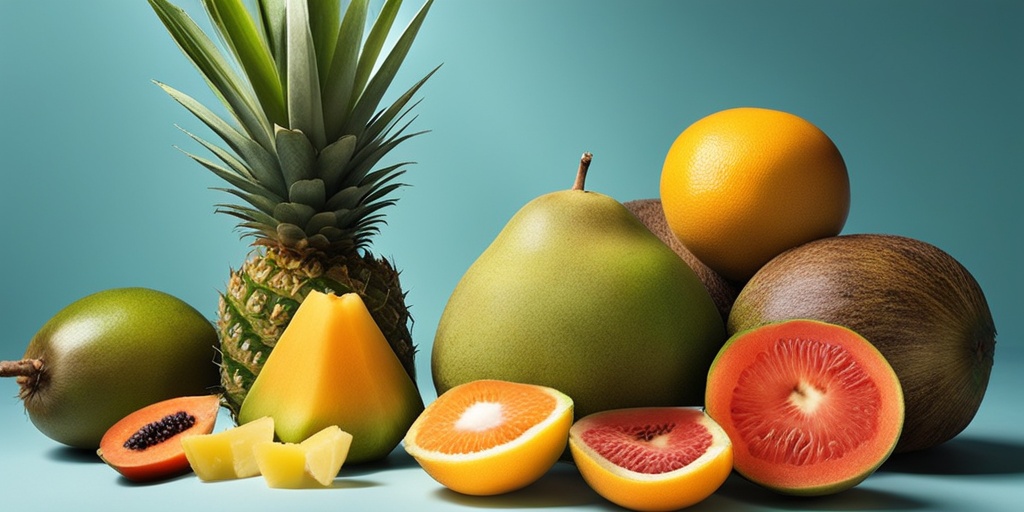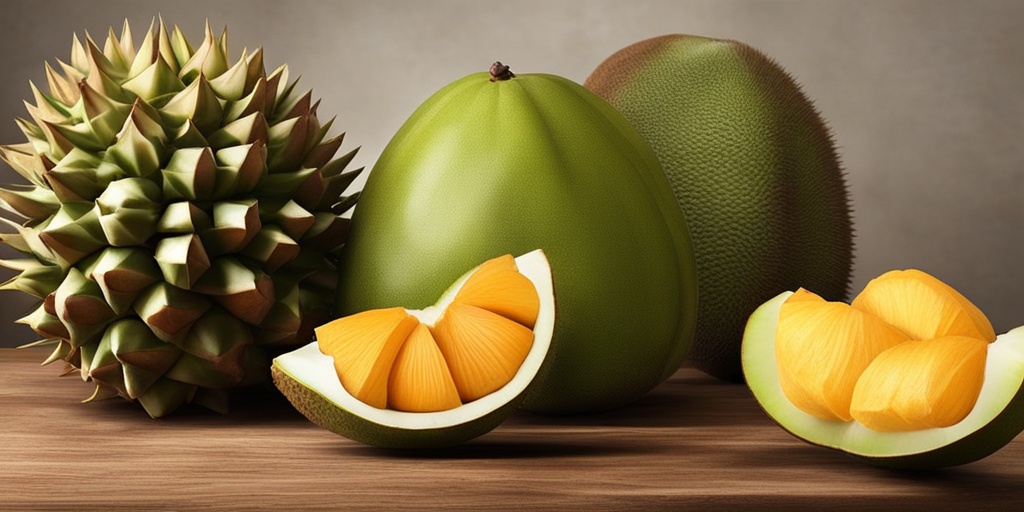Fruit: Exotic Fruits Slideshow
Are you tired of the same old apples and bananas? 🍎🍌 Look no further! Exotic fruits are a world of flavors, textures, and nutritional benefits waiting to be explored. In this article, we’ll delve into the world of exotic fruits, exploring what they are, their health benefits, and more.
What Are Exotic Fruits?
Exotic fruits are fruits that are native to tropical or subtropical regions and are less commonly consumed in Western cultures. They can be found in various parts of the world, including Asia, Africa, Central and South America, and the Pacific Islands. These fruits are often characterized by their vibrant colors, unique flavors, and textures.
Examples of Exotic Fruits
Some examples of exotic fruits include:
- Dragon Fruit: A vibrant pink or yellow fruit with green scales, native to Central and South America.
- Mangosteen: A purple fruit with a soft, white interior, native to Southeast Asia.
- Rambutan: A hairy, red or yellow fruit with a sweet and sour taste, native to Southeast Asia.
- Physalis: A small, papery-covered fruit with a sweet and slightly tart taste, native to South America.
- Guava: A small, green or yellow fruit with a sweet and tart taste, native to Central and South America.
Health Benefits of Exotic Fruits
Exotic fruits are not only a treat for the taste buds, but they also offer a range of health benefits. Many exotic fruits are rich in vitamins, minerals, and antioxidants, making them a great addition to a healthy diet.
High in Antioxidants
Exotic fruits are often rich in antioxidants, which help protect the body against free radicals and oxidative stress. Antioxidants can help reduce the risk of chronic diseases such as heart disease, cancer, and cognitive decline.
Rich in Vitamins and Minerals
Exotic fruits are often rich in essential vitamins and minerals, such as vitamin C, potassium, and fiber. These nutrients are important for maintaining healthy blood pressure, supporting immune function, and promoting digestive health.
May Help Support Weight Management
Many exotic fruits are low in calories and high in fiber, making them a great addition to a weight loss diet. The fiber in exotic fruits can help keep you feeling full and satisfied, reducing the likelihood of overeating.
At Yesil Health AI (yesilhealth.com), we believe in providing evidence-based health answers. Our AI-powered platform provides personalized health recommendations based on the latest scientific research. Whether you’re looking to incorporate more exotic fruits into your diet or need guidance on managing a specific health condition, Yesil Health AI is here to help.
In conclusion, exotic fruits are a world of flavors, textures, and nutritional benefits waiting to be explored. With their high antioxidant content, rich vitamin and mineral profile, and potential weight management benefits, exotic fruits are a great addition to a healthy diet. So, go ahead and try something new – your taste buds and body will thank you! 🍉👍

Top 10 Exotic Fruits You Should Try
Are you tired of the same old apples and bananas? 🍎🍌 Look no further! Exotic fruits are a great way to add some excitement to your fruit bowl and explore new flavors and textures. From sweet and tangy to refreshing and crunchy, these top 10 exotic fruits are a must-try for any fruit enthusiast.
1. Dragon Fruit
This vibrant pink or yellow fruit is native to Central and South America and is also known as pitaya. The flesh of the dragon fruit is dotted with tiny black seeds and has a mild, slightly sweet flavor. Rich in vitamin C and antioxidants, dragon fruit is a great addition to salads, smoothies, and fruit bowls. 🥗
2. Rambutan
This small, hairy fruit from Southeast Asia has a sweet and sour taste, similar to a combination of strawberries and kiwis. Rambutan is rich in iron, calcium, and potassium, making it a nutritious snack. Try it fresh or dried for a sweet and chewy treat. 🍓
3. Mangosteen
This purple fruit from Southeast Asia has a soft, white interior and a sweet and slightly sour taste. Mangosteen is rich in antioxidants and has been shown to have anti-inflammatory properties. Enjoy it fresh or as a juice for a refreshing and healthy drink. 🍊
4. Guanabana
Also known as soursop, this tropical fruit has a creamy, sweet flesh and a soft, prickly exterior. Guanabana is rich in vitamin C and has been shown to have anti-cancer properties. Try it fresh, as a juice, or as a sweet and creamy dessert. 🍰
5. Ackee
This Jamaican fruit has a soft, creamy flesh and a sweet, nutty flavor. Ackee is rich in protein, fiber, and vitamins, making it a nutritious breakfast or snack option. Try it with saltfish for a traditional Jamaican dish. 🍳
6. Physalis
This small, papery fruit from South America has a sweet and slightly tart taste, similar to a combination of strawberries and pineapple. Physalis is rich in vitamin C and antioxidants, making it a great addition to salads and fruit bowls. 🥗
7. Feijoa
This small, green fruit from South America has a sweet and slightly tart taste, similar to a combination of pineapple and kiwi. Feijoa is rich in vitamin C and potassium, making it a nutritious snack or addition to smoothies. 🍃
8. Tamarillo
This small, red fruit from South America has a sweet and sour taste, similar to a combination of strawberries and citrus. Tamarillo is rich in vitamin C and antioxidants, making it a great addition to salads and sauces. 🍅
9. Yuzu
This small, citrus fruit from East Asia has a sour taste and a highly aromatic peel. Yuzu is rich in vitamin C and antioxidants, making it a great addition to salads, sauces, and marinades. Try it as a garnish for sushi or as a flavor boost in cocktails. 🍹
10. Cupuacu
This large, brown fruit from the Amazon rainforest has a creamy, sweet flesh and a soft, velvety texture. Cupuacu is rich in antioxidants and has been shown to have anti-inflammatory properties. Try it fresh, as a juice, or as a creamy and delicious dessert. 🍰
Exotic Fruits for Weight Loss
Looking to shed a few pounds? Exotic fruits can be a great addition to your weight loss diet. Rich in fiber, vitamins, and antioxidants, these fruits can help boost your metabolism, suppress appetite, and support overall health. Here are some exotic fruits that can help you reach your weight loss goals:
Dragon Fruit
This vibrant pink or yellow fruit is low in calories and high in fiber, making it a great snack for weight loss. Dragon fruit is also rich in vitamin C, which can help boost your metabolism and support immune function. 🥗
Mangosteen
This purple fruit is rich in antioxidants and has been shown to have anti-inflammatory properties, which can help support weight loss. Mangosteen is also low in calories and high in fiber, making it a nutritious and filling snack. 🍊
Guava
This tropical fruit is low in calories and high in fiber, making it a great addition to your weight loss diet. Guava is also rich in vitamin C and antioxidants, which can help boost your metabolism and support immune function. 🍊
Papaya
This tropical fruit is rich in vitamin C and potassium, making it a great addition to your weight loss diet. Papaya is also low in calories and high in fiber, making it a nutritious and filling snack. 🥭
Remember to always choose fresh, ripe fruits and consume them in moderation as part of a balanced diet. Exotic fruits can be a great way to add variety and nutrition to your diet, but they should not replace whole, nutrient-dense foods. 🥗

Fruit: Exotic Fruits Slideshow
When it comes to maintaining a healthy lifestyle, incorporating exotic fruits into your diet can be a game-changer. Not only do they add a burst of flavor and color to your meals, but they’re also packed with nutrients and antioxidants that can help combat various health issues. In this article, we’ll explore the benefits of exotic fruits for anti-aging and boosting immunity.
Exotic Fruits for Anti-Aging
As we age, our skin loses its natural glow, and fine lines and wrinkles start to appear. While there are many anti-aging products on the market, nature has provided us with some of the most effective solutions. Exotic fruits are rich in antioxidants, vitamins, and minerals that can help combat the signs of aging.
Dragon Fruit: The Anti-Aging Superstar
Dragon fruit, also known as pitaya, is a tropical fruit that’s rich in vitamin C, vitamin B2, and potassium. It’s an excellent source of antioxidants, which help protect the skin from damage caused by free radicals. The fruit’s high water content also keeps the skin hydrated, reducing the appearance of fine lines and wrinkles.
Mangosteen: The Queen of Fruits
Mangosteen is a Southeast Asian fruit that’s often referred to as the “queen of fruits.” It’s rich in xanthones, which are powerful antioxidants that have been shown to reduce inflammation and improve skin elasticity. Mangosteen also contains vitamin C, which helps to brighten and even out skin tone.
Acai Berries: The Anti-Aging Powerhouse
Acai berries are small, dark purple fruits that grow on the acai palm tree. They’re packed with antioxidants, fiber, and heart-healthy fats. Acai berries have been shown to improve skin elasticity, reduce inflammation, and even help to reduce the appearance of age spots.
Exotic Fruits for Boosting Immunity
A strong immune system is essential for fighting off illnesses and staying healthy. Exotic fruits are rich in vitamins, minerals, and antioxidants that can help to boost your immune system and keep you feeling your best.
Papaya: The Immunity Booster
Papaya is a tropical fruit that’s rich in vitamin C, potassium, and an enzyme called papain. Papain has been shown to have anti-inflammatory properties, which can help to reduce the severity of colds and flu. Papaya also contains vitamin A, which helps to support the immune system and promote healthy skin.
Guava: The Vitamin C Powerhouse
Guava is a small, tropical fruit that’s rich in vitamin C, potassium, and fiber. It’s an excellent source of antioxidants, which help to protect the body from damage caused by free radicals. Guava has also been shown to have anti-inflammatory properties, which can help to reduce the severity of illnesses.
Rambutan: The Immune System Supercharger
Rambutan is a small, hairy fruit that’s native to Southeast Asia. It’s rich in vitamin C, iron, and calcium, making it an excellent fruit for boosting immunity. Rambutan has also been shown to have anti-inflammatory properties, which can help to reduce the severity of illnesses.
Incorporating exotic fruits into your diet can have a significant impact on your overall health and wellbeing. Whether you’re looking to combat the signs of aging or boost your immune system, these fruits are sure to provide a wealth of benefits. So, go ahead and get creative with your fruit choices – your body (and taste buds) will thank you! 🍉🥭

How to Incorporate Exotic Fruits into Your Diet
Are you tired of the same old apples and bananas? Want to add some excitement to your fruit salad? Look no further! Exotic fruits are a great way to mix things up and add some variety to your diet. But, you may be wondering, how do I even get started with these unusual fruits? 🤔
Start with What You Know
Begin by trying fruits that are similar to ones you already enjoy. For example, if you like pineapples, you might enjoy trying a dragon fruit, which has a similar texture and sweetness. If you’re a fan of citrus fruits, you might like yuzu, a Japanese citrus fruit that’s often used in cooking.
Explore Different Cultures
Exotic fruits are often associated with specific cultures or regions. Try exploring fruits that are commonly used in different cuisines, such as:
- Mangoes and guavas in Indian and Southeast Asian cuisine
- Papayas and mangosteens in tropical Asian cuisine
- Physalis and guanabana in Latin American cuisine
Get Creative with Recipes
Exotic fruits can add a unique twist to your favorite recipes. Try using them in:
- Smoothies and juices: Add some passion fruit or acerola cherries to your morning smoothie for a boost of vitamin C.
- Salads: Toss together some mixed greens, starfruit, and a citrus vinaigrette for a refreshing summer salad.
- Desserts: Use jackfruit or rambutan to make unique and delicious desserts.
Exotic Fruits vs. Common Fruits: What’s the Difference?
So, what makes an exotic fruit “exotic” anyway? 🤔
Availability
One of the main differences between exotic fruits and common fruits is their availability. Exotic fruits are often grown in specific regions or countries and may not be widely available in local markets. This can make them more expensive or harder to find than common fruits like apples or bananas.
Nutritional Content
Exotic fruits often have unique nutritional profiles compared to common fruits. For example, durian is high in vitamin C and potassium, while ackee is a good source of protein and fiber. These fruits can add variety to your diet and provide essential nutrients.
Taste and Texture
Exotic fruits often have distinct tastes and textures that set them apart from common fruits. For example, dragon fruit has a crunchy texture and a sweet, slightly sour taste, while mangosteen has a soft, white interior and a sweet and sour taste.
By incorporating exotic fruits into your diet, you can add variety, nutrition, and excitement to your meals. So, go ahead and give some of these unusual fruits a try! 🍉👍

Fruit: Exotic Fruits Slideshow
Get ready to embark on a journey to explore the world of exotic fruits! 🌴 From rare and unusual varieties to fruits you may have never heard of, we’ve got you covered. In this article, we’ll take you on a visual tour of some of the most fascinating and delicious exotic fruits out there.
Frequently Asked Questions
Where to Find Exotic Fruits?
Looking to try some exotic fruits but not sure where to find them? 🤔 You can try visiting specialty grocery stores, farmers’ markets, or online retailers that import international fruits. You can also check with local fruit enthusiasts or join online communities to find out where to source these fruits.
How to Store Exotic Fruits?
Got your hands on some exotic fruits but not sure how to store them? 🍉🍊 Most exotic fruits require similar storage conditions to regular fruits. Keep them away from direct sunlight, store them in a cool dry place, and consume them within a few days of purchase.
Do I Need to Cook Exotic Fruits Before Eating?
Wondering if you need to cook exotic fruits before consuming them? 🍲 In most cases, exotic fruits can be eaten raw, just like regular fruits. However, some fruits like dragon fruit may require slight cooking to bring out their natural sweetness.
What are Some Popular Exotic Fruits?
Curious about some popular exotic fruits? 🤔 Some popular ones include dragon fruit, passion fruit, rambutan, and durian. These fruits are not only delicious but also packed with nutrients and antioxidants.
Can I Grow Exotic Fruits at Home?
Want to grow your own exotic fruits at home? 🌱 While it may be challenging to grow some exotic fruits in certain climates, many varieties can be grown in greenhouses or indoor containers. Do some research on the specific growing conditions required for the fruit you want to grow.
Are Exotic Fruits Good for Me?
Wondering if exotic fruits are good for your health? 🥑 Absolutely! Exotic fruits are rich in vitamins, minerals, and antioxidants, making them a great addition to a healthy diet. They can help boost your immune system, support digestive health, and even reduce inflammation.
We hope you enjoyed this exotic fruit slideshow and learned something new about these fascinating fruits! 🌟 Remember to always try new fruits in moderation and consult with a healthcare professional if you have any food allergies or concerns.




